Brexit: Boris Johnson’s second attempt to trigger election fails
From BBC

MPs have again rejected Prime Minister Boris Johnson’s calls for a snap election, as the five-week suspension of Parliament begins.
In all, 293 MPs voted for the prime minister’s motion for an early poll, far short of the number needed.
Earlier, opposition MPs confirmed they would not back the push for a 15 October poll, insisting a law blocking a no-deal Brexit must be implemented.
Mr Johnson has been warned he could face legal action for flouting it.
Ministers have called the law “lousy” and said they would “test to the limit” what it required of them.
‘Strive to get an agreement’
At present, UK law states that the country will leave the EU on 31 October, regardless of whether a withdrawal deal has been agreed with Brussels or not.
But the new legislation, which was granted royal assent on Monday, changes that, and will force the PM to seek a delay to 31 January 2020 unless a deal – or a no-deal exit – is approved by MPs by 19 October.
BBC political editor Laura Kuenssberg said although No 10 insisted it was not looking to break the new law, efforts were under way to examine ways of getting around it.
The prime minister said the government would use the time Parliament was suspended to press on with negotiating a deal with the EU, while “preparing to leave without one”.
“No matter how many devices this Parliament invents to tie my hands, I will strive to get an agreement in the national interest,” he said.
“This government will not delay Brexit any further.
“We will not allow the emphatic verdict of the referendum to be slowly suffocated by further calculated drift and paralysis.”
Mr Johnson told MPs Mr Corbyn had previously said he would back an election if legislation to prevent the government from forcing through a no-deal Brexit on 31 October became law.
“By his own logic, he must now back an election.”
The election vote was the sixth defeat for Mr Johnson in the Commons.
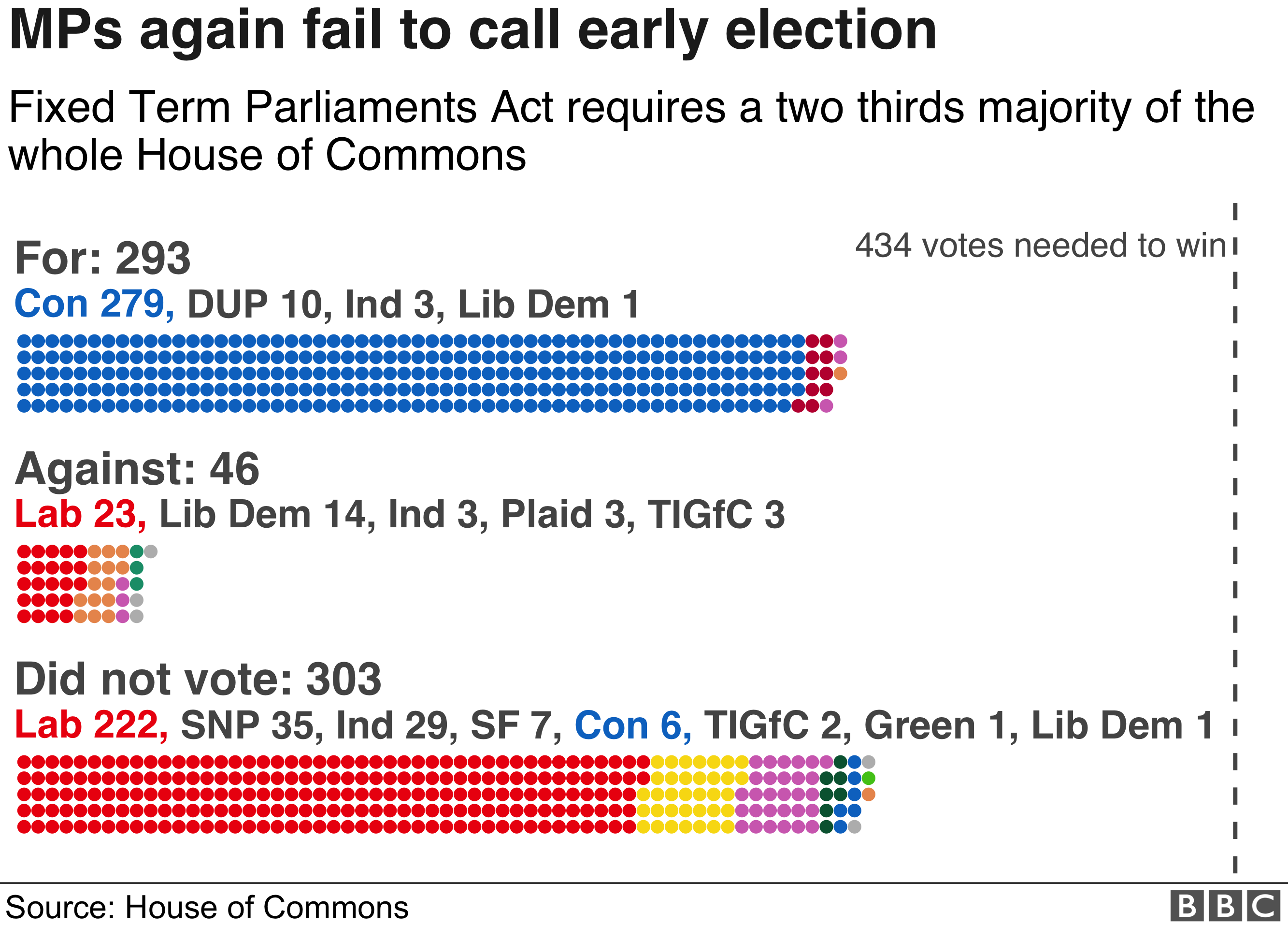

But Mr Corbyn told MPs that Labour was “eager for an election – but as keen as we are, we are not prepared to risk inflicted the disaster of no-deal on our communities out jobs our services or indeed our rights”.
And he said the prime minister was suspending Parliament to avoid discussions of his plans.
Labour, the SNP, the Liberal Democrats, the Green Party, the Independent Group for Change and Plaid Cymru met on Monday morning and agreed not to back the motion for an election.





The prime minister’s self-imposed Halloween Brexit deadline looks further out of reach than a few short days ago.
Is it impossible? Absolutely not.
There is the possibility, still, of a deal, with Number 10 today stressing it was still their primary aim.
Whispers again about a Northern Ireland only backstop, and a bigger role for the Stormont assembly, if it ever gets up and running, are doing the rounds.
Some MPs and some diplomats are more cheerful tonight about the possibilities of it working out.
If you squint, you can see the chance of an agreement being wrapped up at pace, although it seems the chances range somewhere between slim and negligible.



Meanwhile, John Bercow has said he will stand down as Commons Speaker and MP at the next election, or on 31 October, whichever comes first, after 10 years in the role.
Earlier on Monday, the prime minister suffered another defeat in the House of Commons.
MPs backed calls, by 311 votes to 302, for the publication of government communications relating to the suspension of Parliament and the release of all documents relating to Operation Yellowhammer, the government’s no-deal contingency plan, shared with ministers since 23 July.
Former Conservative Dominic Grieve, the newly independent MP who tabled the motion, told MPs it was “entirely reasonable” to ask for the disclosure “so the House can understand the risks involved and this can be communicated more widely to the public”.
But minister Michael Gove, who is in charge of no-deal preparations, said he had given evidence to the EU select committee on Yellowhammer and he hoped “those assurances were sufficient”.
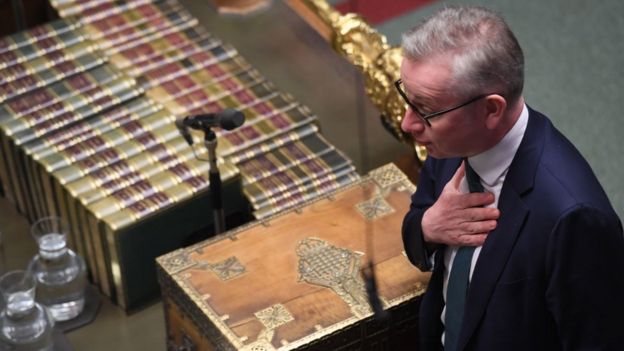

Attorney General Geoffrey Cox, meanwhile, questioned the legal right of the government to require employees – including the PM’s top aide Dominic Cummings – to open up their private email accounts and personal mobiles to scrutiny.
After the vote, a government spokesman said the extent of disclosure demanded was “unprecedented and disproportionate”, adding that it would “consider the implications and respond in due course”.
MPs also approved, without a formal vote, a motion from Labour leader Jeremy Corbyn demanding the government abide by the rule of law.
He said the PM’s unwillingness to state categorically that he would comply with the Brexit extension legislation was an “assault on the rule of law”.
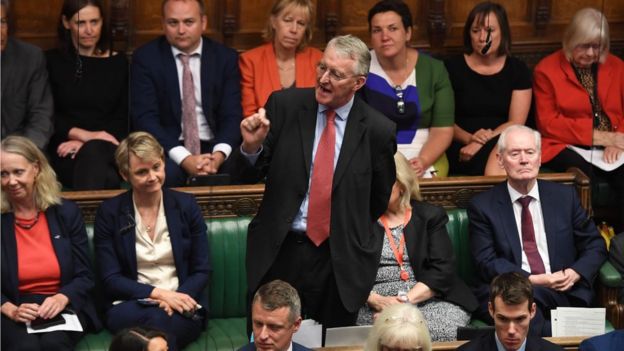

In response, Foreign Secretary Dominic Raab said the government would always uphold the law but the legislation in question was “flawed” and the UK would continue to negotiate on the basis of leaving on 31 October.
The prorogation – or suspension – of Parliament until 14 October began at the end of Monday’s sitting.
It means MPs will not get another chance to vote for an early election until after then, meaning a poll would not be possible until late November at the earliest.
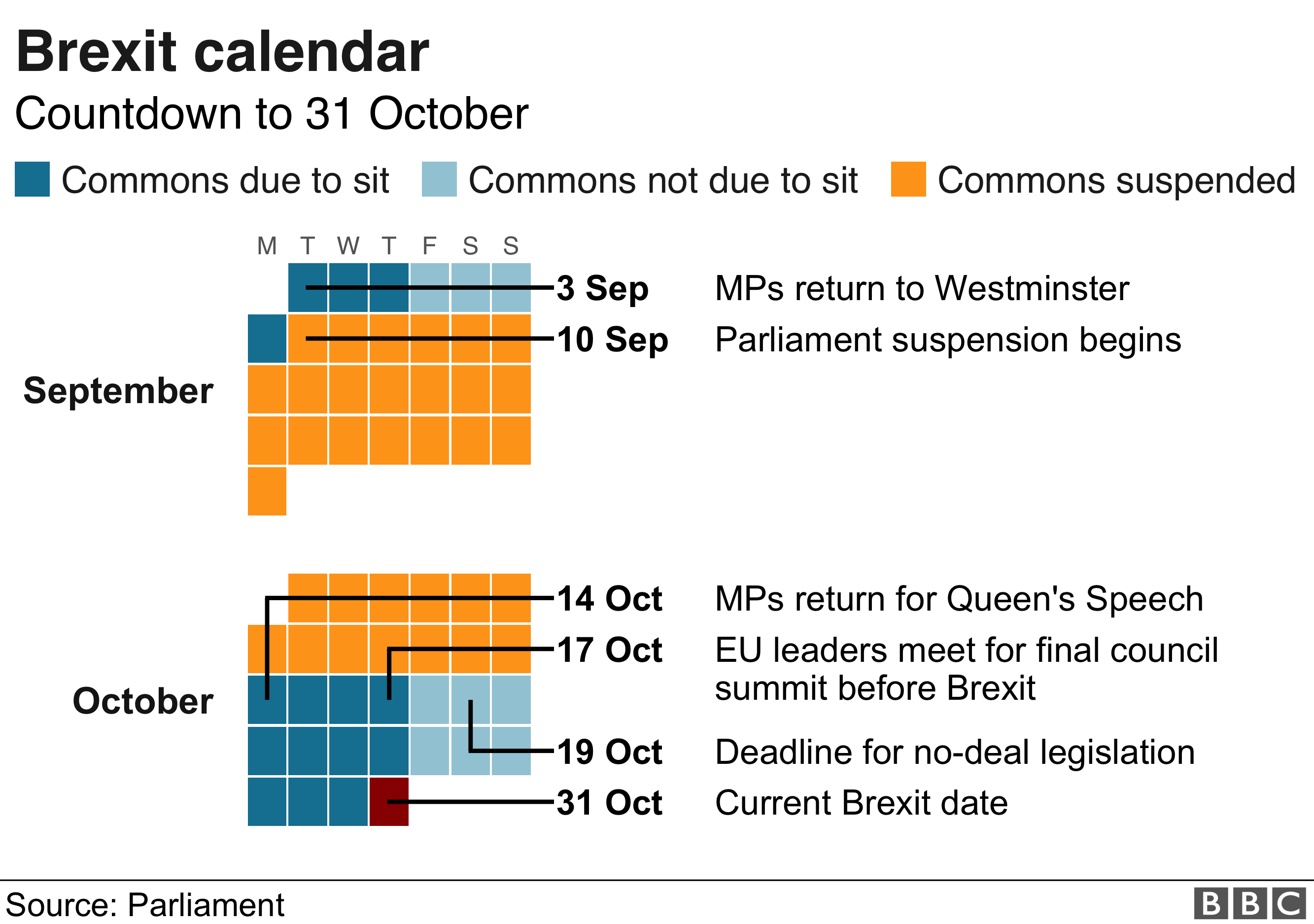

Elsewhere, one plan reportedly under discussion to get round the Brexit delay legislation is to ask a sympathetic EU member to veto an extension.
Another potential option would be to formally send the extension request mandated by the new law, but also send a second letter to the EU making it clear the UK government does not want one.
However, Lord Sumption, a former UK Supreme Court judge, said such a ploy would not be legal.
“To send the letter and then try and neutralise it seems to me to be plainly a breach of the act,” he told BBC Radio 4’s Today programme.
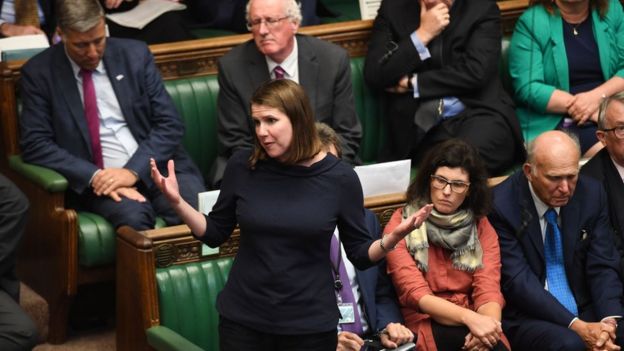

Mr Johnson held talks with Leo Varadkar in Dublin on Monday morning- his first meeting with the Irish prime minister since he entered No 10.
The Irish border has proved a key sticking point in attempts to agree a Brexit deal between the UK and the EU.
Mr Johnson wants the controversial backstop – an insurance policy against a hard border on the island of Ireland – scrapped, because if applied, it would see the UK stay in a single customs territory with the EU and align with current and future EU competition rules.
Northern Ireland would also stay aligned to some rules of the EU single market.
These arrangements would apply unless and until both the EU and UK agreed they were no longer necessary.
The PM told a press conference he believed a deal could be done and an alternative to the backstop found.
Leaving without a deal – something he said again he was willing to do – “would be a failure of statecraft for which we will all be responsible”, Mr Johnson added.
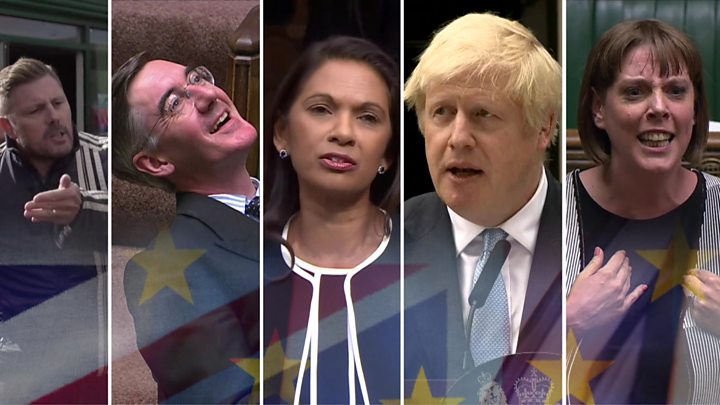

Mr Varadkar said Ireland was “open to alternatives” to the backstop “but they must be realistic”, adding: “We haven’t received such proposals to date.”
He has said he is open to a solution involving a backstop which only applies to Northern Ireland, but Democratic Unionist Party MPs – Mr Johnson’s allies in Parliament – strongly oppose the idea.
For more on this story and video go to: https://www.bbc.com/news/uk-politics-49630094





